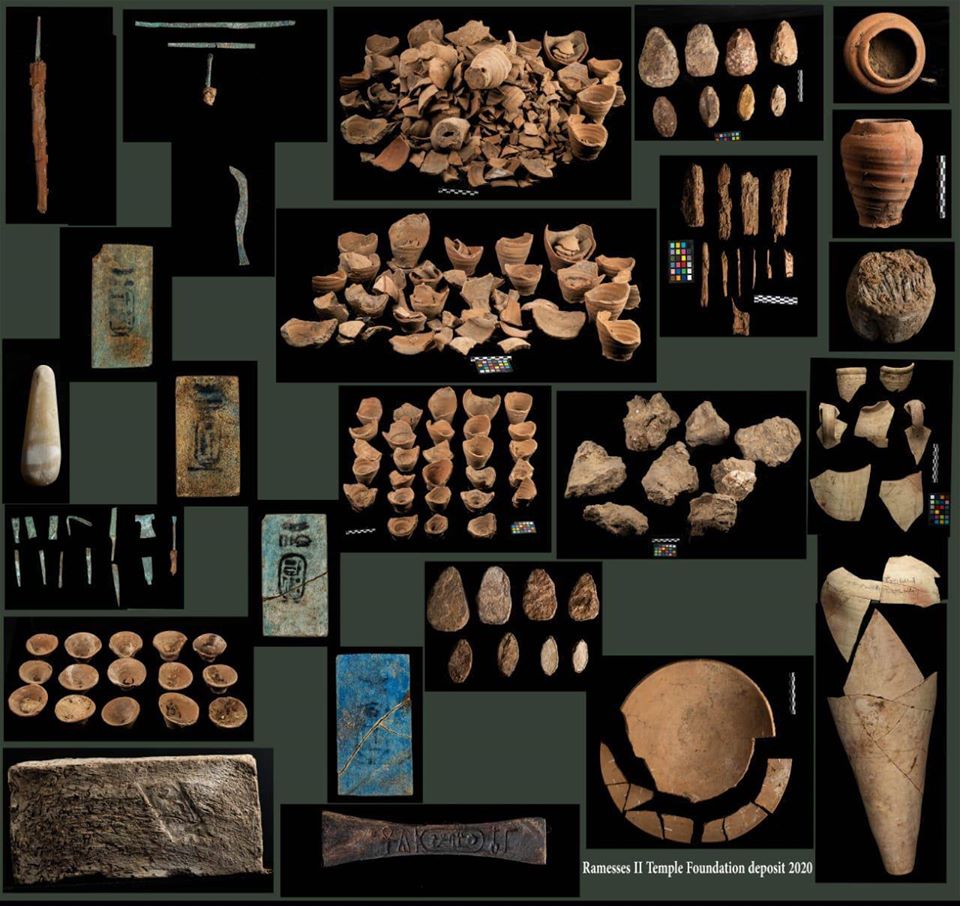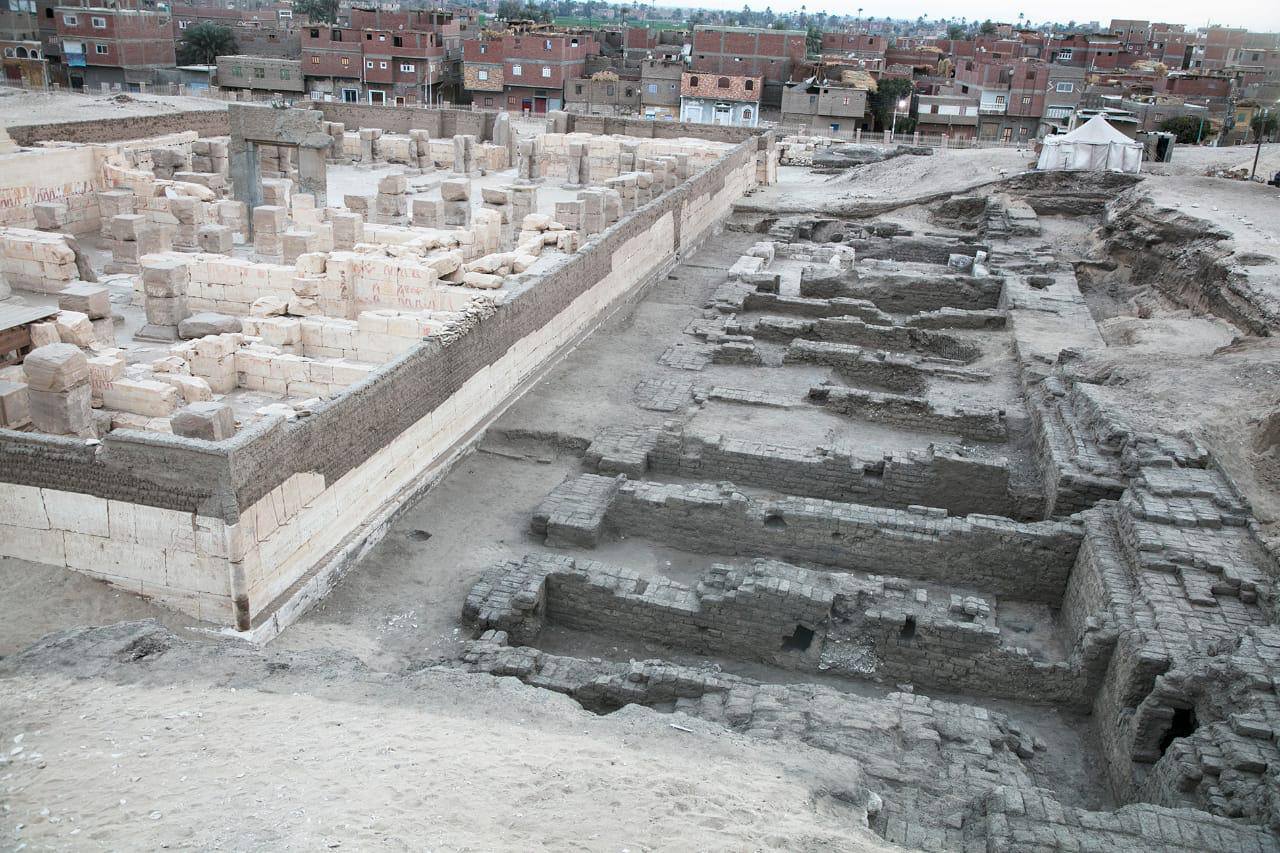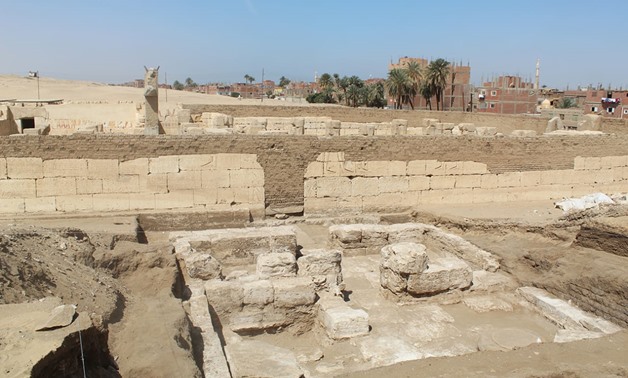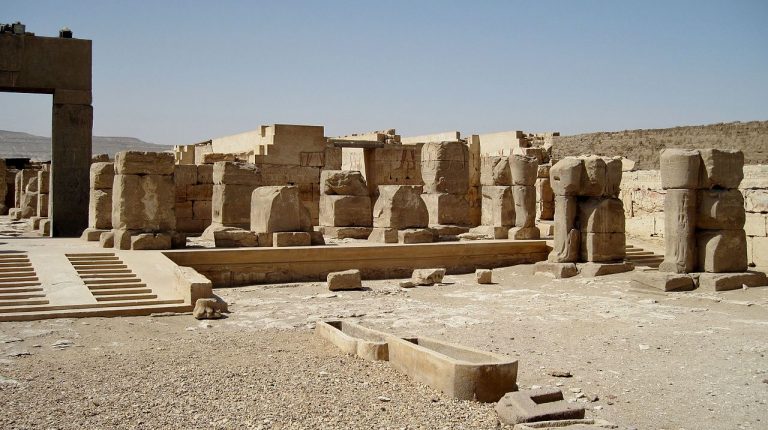April 20, 2020
The Ministry of Tourism & Antiquities in Egypt has announced the discovery of foundation deposits and storerooms in the sacred site of Abydos, Sohag, at the Temple of Ramses II. The archaeological team responsible for the discovery is led by Dr. Sameh Iskandar from New York University-ISAW. Dr. Iskandar is an Egyptian Egyptologist and the former president of the American Research Center in Egypt.
The deposits contained offerings, metal tools, pottery vessels, grindstones, and plaques inscribed in paint with the throne name of Ramses II. Along with the deposits, the researchers found ten large mudbrick storerooms attached to the temple palace. The storerooms showed that they had vaulted brick ceilings and were used as granaries, along with storing temple objects.

In addition , the team found out that during the Ptolemaic Period 12 sacrificial votive bull heads had been placed inside niches cut into the storerooms’ walls. The team unearthed a bull skeleton which was buried under the temple’s palace floor.
, the team found out that during the Ptolemaic Period 12 sacrificial votive bull heads had been placed inside niches cut into the storerooms’ walls. The team unearthed a bull skeleton which was buried under the temple’s palace floor.
Dr. Iskandar highlighted the importance of such discovery as it shows that the construction of the temple began during the reign of Ramses II and not that of his father, Seti I, as previously debated. This can be concluded from the material found within the foundation deposits. Foundation deposits are part of construction ceremonies in ancient Egypt in celebration of starting the construction of a tomb or temple. As the inscription showed the name of Ramses II, it was indeed him who started the construction of the temple. Furthermore, the Ptolemaic Period burials show that the site was still sacred and in use during that period in ancient Egyptian history.
Abydos was an important religious site in ancient Egypt, containing tombs of the early kings of Egypt. It was also believed to be the burial place of the god Osiris, god of the underworld, and the ancient Egyptians made pilgrimage to the site. Today, the most important monuments in Abydos includes the temple of Seti I and that of his son, Ramses II, to which this discovery is associated.



If you wish to receive more information on our new tours, events and news of our portal, please enter your e-mail address:
